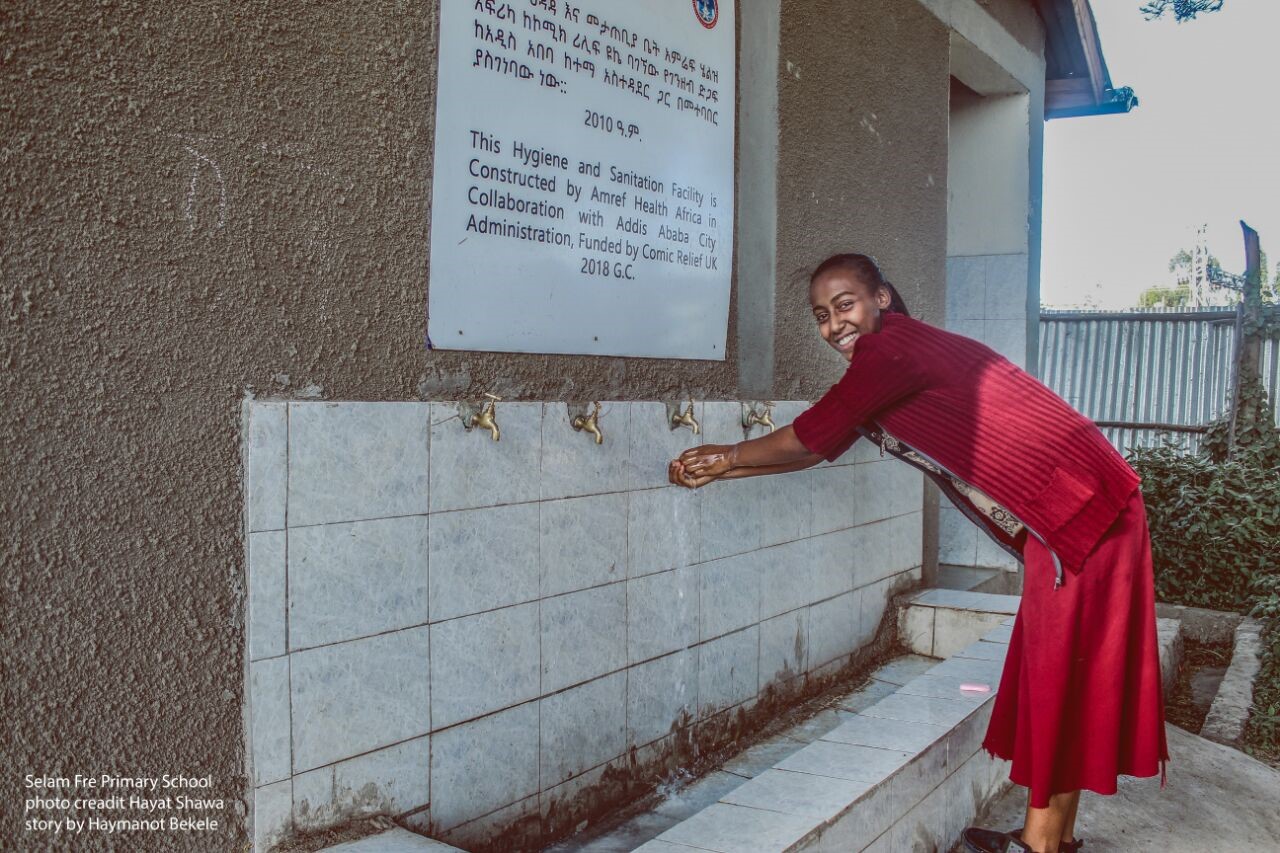Like other countries around the world, Ethiopia, Africa’s second most populous nation, is reeling from the effects of the pandemic on a fragile health system, while at the same time grappling with the very real threat of economic recession and its devastating consequences.
The government declared a five-month state of emergency, imposed movement restrictions, and enforced social distancing and wearing of face masks while out in public, yet, the pandemic continues to hold the country in its grip. Nonetheless, restrictions are slowly being lifted and the country is continuing to make strides towards some level of normalcy, with the implementation of a new directive for the prevention and control of the COVID -19 pandemic. But even as we focus on moving forward while concurrently finding and implementing more long-term solutions to stemming the spread of COVID -19, simpler interventions such as handwashing with soap and water must not be overlooked.
Research has shown that washing your hands with soap and water is one of the most effective ways of protecting yourself and others from infection. Despite its simplicity, handwashing remains out of reach for an estimated three billion people around the world who do not have access to facilities with water and soap
within their homes. In countries such as Ethiopia, 60% to 80% of communicable diseases are caused by limited access to sanitation and hygiene services and safe water, a reality that makes it harder for the government to respond to the coronavirus pandemic effectively and for disadvantaged communities to keep themselves safe using basic resources.
To complement government efforts to increase access to improved Water, Sanitation and Hygiene (WASH), Amref Health Africa has partnered with WASTE, a Dutch non-profit organisation, to promote proper handwashing and improved sanitation. The project, dubbed Financial Inclusion Improves Sanitation and Health (FINISH), primarily aims to increase demand for and supply of sanitation and hygiene facilities within communities by making them affordable.
To create demand among low income house- holds, Amref Health Africa promotes the benefits of improved latrine systems, including hygiene and disease prevention, and engages health workers to conduct door-to-door campaigns to explain the significance of improved sanitation and facilitate visits to sanitation facilities to allow households to experience them. Once demand is created, this unique model then seeks to address the financial barrier that prevents communities. “Since the launch of the FINISH project in 2018, close to 300 sanitation facilities have been constructed in five districts of Oromia and Amhara regions, and 126,000 more are planned over the next five years.”
from investing in these facilities by leveraging partnerships with financial institutions to offer affordable loans, encouraging households to pool their resources in order to access loans that average 364 USD per latrine. These funds are paid directly to the local contractors and masons, with whom Amref is collaborating with to develop affordable sanitation options that work within the local context. Since the launch of the FINISH project in 2018, close to 300 sanitation facilities have been constructed in five districts of Oromia and Amhara regions, and 126,000 more are planned over the next five years. As a result, there has been significant improvement in handwashing practices, more community-led initiatives to construct latrine systems, and increased willingness to pay for improved WASH facilities. This approach is a relatively simple yet holistic approach to a complex challenge, but one whose success will be dependent on deeper community engagement and sustained multi-sectoral cooperation to plug the $2.8 million USD funding gap that threatens to reverse gains and to lead to greater investment in affordable, accessible WASH facilities, especially during the COVID -19 pandemic. It is crucial that now, perhaps more than ever before, water, soap and basic sanitation – core pillars of infection prevention and control – are made available, especially to vulnerable communities. Until we fund a viable vaccine or treatment, improved WASH practices remain the first line of defense against the COVID -19 pandemic.
Amref Health Africa teams up with African communities to create lasting health change.

